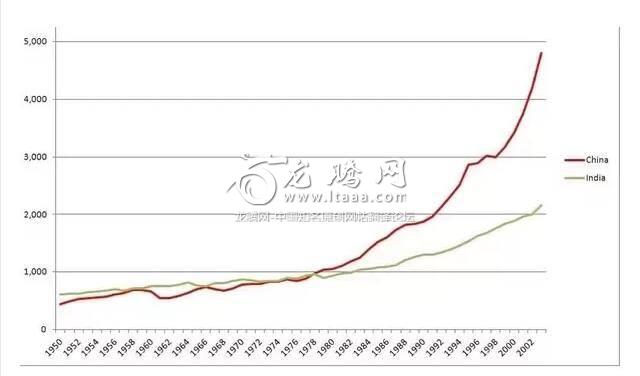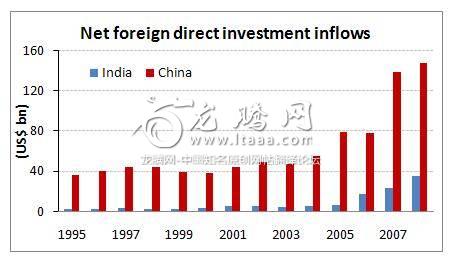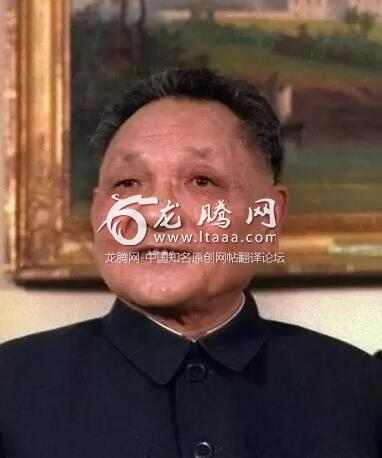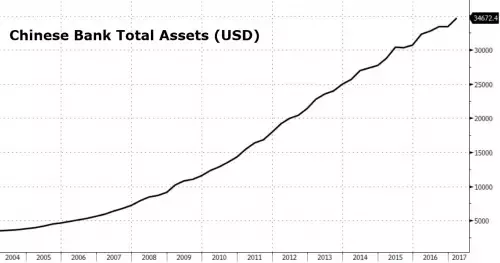为什么中国能涅槃重生再次成为世界强国,而这对如埃及、印度等的文明古国却极具挑战性? [美国媒体]
quora网友:与中国不同的是,埃及没有一个能够动员全埃及人并且对经济拥有垄断控制权的组织。而这是早期推动经济发展阶段必需的。此外,埃及从未有过一群对经济发展有强烈构想并能够实现这些构想的技术专家们。相反,现实证明,唯一能够阻止埃及社会陷入无政府状态和宗教冲突战争的机构被是埃及军队......
-------------译者:龙腾翻译总管-审核者:龙腾翻译总管------------
Why has China been able to re-emerge as a world power again while it has been challenging for other old civilizations like Egypt and India?
为什么中国能涅槃重生再次成为世界强国,而这对如埃及、印度等的文明古国却极具挑战性?
-------------译者:jimmy723-审核者:维以------------
Balaji Viswanathan History buff.
upxed May 3 2015
Let's take the simpler case of Egypt out. Their glorious times came when the rest of the world didn't realize how glorious they were. Since the Hittites found out about Egypt for the past 3500 years their civilization has become the battleground of outside civilizations - Persians Greeks Romans Arabs Ottomans British. To this day they are dragged into the wars of Middle East. Fortunes of Egypt will primarily depend on peace in West Asia.
让我们用埃及这个更简单点的例子来说明吧。他们在世界其他(各国)都没有意识到他们有多么繁荣时迎来了自己最辉煌的时刻。自从赫梯人在3500年前发现了埃及,他们的文明(帝国)逐渐成为外来文明的战场——波斯人、希腊人、阿拉伯人、奥斯曼人和英国人。直到现在,他们仍被卷进了中东战争。埃及(未来)的命运将主要取决于西亚的和平。
In case of China the deviation in their fortunes came only a generation ago. Until 1980 both China and India were evenly matched in infrastructure and economy. In short after first 3 decades of Communist rule in China and democratic rule in India both nations ended up at the same point. So is democracy holding India? If Communist Party was helping China why didn't they not zoom in the first 3 decades post the war? What changed in 1978?
就中国而言,他们(国家)的命运在30年前就已经发生了变化。在1980年之前,中国和印度在基础设施和经济方面旗鼓相当。简而言之,在中国执政头30年——同一时期印度实行民主政权统治后,两国的发展水平最终处于同一阶段。是民主在阻碍印度的(发展)吗?如果中国(执政党)是利于中国发展的,为什么他们没有在二战后的头三十年内大放光彩?1978年到底发生了什么改变?
What changed in 1978? That was the start of the Open Door Policy by Deng Xiaoping. China let foreign companies and investors in. They effectively became capitalist. That caused an economic explosion.
1978年发生什么变化了呢?那一年是邓小平实施改革开放政策的开始。中国允许外国公司和投资者进入(中国市场),这实际上形成了(社会主义)市场经济。,这促成了一次经济爆炸性增长。
Look at the blue worm. Until recently it didn't show up.
India didn't do that way. Not because we were democratic. But because we grew up in socialism. If India were not a democracy it would have been ruled by dictators such as Indira Gandhi who was far from capitalism. India waited for 13 more years and only in 1991 India opened up. And that opening up was not as grand as Deng's policy but much more cautious. Indian leaders have since then been always at the door not sure if they should become capitalist or not. Not because of democracy. But because they themselves were not sure of capitalism.
注意看那些蓝色条柱。直到最近它才显现出来。
印度并没有(像我们)那样做。不是因为我们是实行民主的。而是因为我们是在社会主义中长大的。如果印度不是一个民主国家,它就会被像远不认同资本主义(经济)的英迪拉·甘地这样的独裁者统治。印度又苦苦等了13年,直到1991年印度才开放。虽然这一开放并不如邓小平政策的宏大,但却更加谨慎。从那时起,印度领导人一直都不确定自己是否应该成为资本主义者。不是因为民主。而是因为他们自己也不怎么确信资本主义。
-------------译者:C先生-审核者:维以------------
Now India has finally got a leader who appreciates capitalism. And the countries are now equally matched in GDP growth. See you don't need communist party to get 8% or 10% growth. You just need a leader who understands capitalism. He/She could be democratic or autocratic.
现如今,印度终于有了一个懂得欣赏资本主义的领导人。而这两国(中国与印度)的GDP增长率现在也是不相上下。看来不需要中国你也能获得8%或10%的(经济)增长率。你只需要一个懂得资本主义(运作)的领导者。他/她可以是民主的或专制的。
Of course India has a lot of catching up to do given that India took so long a time to appreciate capitalism. That is from that 13 years of extra time lost. China's per capita income of 2004 is same as India's in 2014. The difference in the per-capita incomes of India and China is about $5000. To put that in context United States & Western Europe have nearly $50000 more per-capita income than either country [List of countries by GDP (nominal) per capita]. In other words both have such a long way to go.
当然,印度还有很多事情要做,鉴于印度花了太长时间观摩欣赏资本主义,它浪费了整整13年的时间(去发展)。中国2004年的人均收入与2014年的印度人均收入持平。印度和中国的人均收入差距约为5000美元。把这放入在美国和西欧的情况背景下,美国和西欧的人均收入比两者中任何一个国家都高出近5万美元。(基于国家人均GDP收入排名)。换句话说,两者都有段很长的路要走。
Finally it is not democracy or the Communist Party. It is all about attitudes towards capitalism and markets. China is far more capitalist than India and opened up more than a decade early. That's it.
最后,跟是不是民主党还是TG无关。所有的一切取决于你对资本主义和市场的态度。中国比印度更深入资本主义,且早在十多年前就进行了改革开放。就是这样。
Alex Jouravlev know some History...
Answered May 4 2015
IMHO because of one particular factor. This one:
请恕我直言。是因为其中有一个特殊的因素。这个因素是(图中这人):
Deng Xiaoping started transitioning to Capitalism 6 years after the death of Mao Zedung China's Lenin/Stalin. That means he could harness the repressive structure to develop the country while it was still following the orders. Compare that to Russia that spent 35 years sinking into corruption so when Gorbachev asked Young Communists (Komsomol) to facilitate innovation and small business they instead implemented the money laundering scheme at the scale that brought down the economy.
邓小平在毛泽东——中国的列宁/斯大林逝世6年后开始向资本主义过渡转型。这意味着在中国依然实行共产主义制度之时,邓小平还能利用这个压迫性的结构来促进国家的发展。与此相比,俄罗斯花了35年的时间却陷入腐败,因此,当戈尔巴乔夫要求年轻的共产主义者(Komsomol)促进创新和小型企业时,他们转而实施了旨在规模上降低经济的洗钱计划。
-------------译者:jimmy723-审核者:龙腾翻译总管------------
Paul Denlinger US_2016 = Germany_1933
Answered May 1 2015
I would say that China has been able to re-emerge as a world power because it is under the rule of the Chinese Communist Party. The Chinese Communist Party is an authoritarian party which holds all the big levers of the Chinese economy and its resources and has been able to mobilize the Chinese in a way which India and Egypt have not been able to.
我想说的是,中国之所以能够重新崛起为世界强国,是因为它是在中国的统治下。中国是一个威权主义政党,拥有决策中国经济及其资源的所有重要杠杆,并能够以一种印度和埃及无法做到的方式动员全中国人民。
The most ironic thing about the Chinese Communist Party is that it was created largely as a reaction to western economic and imperialist aggression against China. There is a strong argument for saying that the West created its own monster in China by pushing too far and too hard in China. For the supporters of the CCP it has been the Chinese peoples' first line of defense against western economic aggression and imperialism.
对于中国而言,最具讽刺意味的是,它的建立主要是为了反抗西方经济和帝国主义对中国的侵略。有一种观点强烈认为,西方对中国的(侵略)太过强硬深远以至于它在中国造出了个怪物。对于中国的支持者来说,中国人民抵御西方经济和帝国主义侵略的第一道防线。
Some in the west have argued that the west simply wanted to bring freedom and Christianity to ordinary Chinese not oil interests and opium. In fact it was not nearly as simple. If you want to get a deeper understanding of official US policy towards east Asia then the book Amazon.com: Customer Reviews: The Imperial Cruise: A Secret History of Empire and War is a good introduction.
西方的一些人认为,西方只是想把自由和基督教(思想)传播给中国普通老百姓,并非是对石油和鸦片(利益的觊觎)。事实上一切并没有那么简单。如果你想深入了解美国对东亚的官方政策,亚马逊上面有一本叫《1905帝国巡游:美国塑造亚太格局的伏笔》的书就很好地介绍了这一切。
In contrast Egypt chose pan-Arab socialism under Gamal Abdul Nasser to try to bring Egypt out of third world status. However unlike China Egypt never became self-reliant. Instead it relied on Soviet help to build the Aswan Dam. While the ancient Egyptians were able to build the pyramids modern Egyptians have never been able to build anything on that scale.
相比之下,埃及选择了泛阿拉伯社会主义,在萨达特的领导下试图将埃及从第三世界的地位中拉出来。然而,与中国不同的是,埃及从未自立更生过。相反,它依靠苏联的帮助建造了阿斯旺水坝。尽管古埃及人能够建造金字塔,但现代埃及人却从未建过规模如此大的建筑。
When pan-Arab socialism failed Egypt decided to throw in its lot with the west under Sadat but that really only helped Sadat not ordinary Egyptians. Then it tried Islamic fundamentalism under the Muslim Brotherhood but that didn't improve the lives of ordinary Egyptians either because it offered no blueprint for economic development. Now it is back to military rule.
当泛阿拉伯社会主义失败的时候,在萨达特总统的领导下,埃及决定冒险将自身(国家)命运压在西方身上,但这只有助于萨达特(的统治)并没有给埃及的普通老百姓带来好处。然后,埃及在穆斯林兄弟会的领导下尝试了下伊斯兰原教旨主义,但这并没有改善埃及普通老百姓的生活,因为它没有为(埃及)提供经济发展蓝图。现在埃及又重回军事统治时期。
-------------译者:jimmy723-审核者:维以------------
Unlike China Egypt has no single organization which can mobilize Egyptians and has monopoly control over the economy. This is what is needed to jumpstart the economy in its early phase. Also Egypt never had a class of technocrats who had strong ideas about economic development and were able to implement them. Instead the only institution which was able to prevent Egyptian society from descending into anarchy and religious warfare has proven to be the Egyptian army.
与中国不同的是,埃及没有一个能够动员全埃及人并且对经济拥有垄断控制权的组织。而这是早期推动经济发展阶段必需的。此外,埃及从未有过一群对经济发展有强烈构想并能够实现这些构想的技术专家们。相反,现实证明,唯一能够阻止埃及社会陷入无政府状态和宗教冲突战争的机构被是埃及军队。
The early years of India's development seem to have successfully combined the worst aspects of democracy and socialism without having any of their individual advantages. Because of democracy policies were easily vetoed and it was impossible to do the large-scale infrastructure development which China did. Because of socialism there was no strong profit motive to support development. Smart Indians with ambition would choose to emigrate to the US and Europe instead of remaining in India.
印度的早期发展似乎成功地将民主和社会主义的最坏面结合在了一起,却没有吸取(这两种制度的)任何优越之处。因为民主,政策很容易被否决,而且也不可能像中国一样进行大规模的基础设施建设。因为社会主义,无法提供支持发展的强劲利益动机。有野心的聪明印度人会选择移民到美国和欧洲,而不是留在印度。
The administration of PM Modi now seems to be addressing these shortcomings of the Indian model of development.
莫迪政府现在似乎正在解决印度发展模式中出现的不足。
To sum up while westerners frequently criticize the Chinese Communist Party on human rights grounds it has been able to revive an old culture and civilization and make it a major player on the world stage again after 200 years of decline.
总而言之,在西方人因人权问题而经常批评中国时,中国在历经200年的衰落之后已经能够复兴起旧的文化和文明,并使其成为世界舞台上的主要参与者。
The party though should not be given all the credit. A lot of credit needs to go to the hard work industriousness and intelligence of ordinary Chinese.
但不应给予中国所有的赞扬。他们的很多理念是需要靠中国普通老百姓的勤劳和智慧才能实现的。
Joseph Boyle
Answered May 1 2015
India is perhaps 2 decades behind. That is short in historical terms.
印度可能落后了20年。从历史角度来看是很短的时间段。
Egypt is a much smaller region though densely populated.
虽然人口稠密,但埃及是一个(比中国)小得多的地区。
China had a cultural history of trade literacy hard work etc. that was quickly unleashed under Deng Xiaoping. But India had much of this too. Was the Indian bureaucracy that much more smothering? Perhaps it's hard to tell.
中国有一段关于贸易、文学和(人民)辛勤劳作的文化史;这一特点在邓小平的领导下很快便体现了出来。但印度也有很多这样的事情。是因为印度的官僚主义更令人窒息吗?也许这很难判断。
One factor not mentioned yet is East Asia as a connected area. Despite the conflicts between Japan and China Japan did serve as an early center of modernization and adapting Western ideas to East Asia and it seems like ideas and culture spread easily between the East Asian countries regardless of wars.
目前还没有提到的一个因素是东亚是一个连通区域。尽管日本和中国之间存在冲突,但日本确实是一个早期的现代化中心并将西方的理念融入进东亚(文化中),不考虑战争因素的话,思想和文化似乎在东亚国家之间很容易传播开来。
-------------译者:jimmy723-审核者:龙腾翻译总管------------
Robin Daverman world traveler
Answered May 2 2015
Because the Chinese-style of governmental administration is actually not bad at least for the Chinese.
因为中国式的政府管理实际上并不坏,至少对中国人来说是这样。
In both Egypt and India the ancient civilizations have very little to do with the modern day society. Egypt was conquered by Rome first followed by a series of Caliphate finally became a British protectorate before gaining its independence. India was also a British colony before its independence. The civil and political institutions from both Egypt and India are largely British copies which has very little to do with their own culture and civilization. Neither country has had a lot of experience managing this "foreign" style of governing and both of them run into trouble soon after independence.
在埃及和印度,古代文明与现代社会几乎没有任何关联。埃及先是被罗马征服,接着是几任哈里发时代的更迭,在最终获得独立之前还成为了英国的保护国。印度在独立之前也曾是英国的殖民地。埃及和印度两国的民事和政治制度都是模仿英国的,与他们自己的文化和文明没有多大关系。两国政府在实施运行这种“外来”的统治模式上并没有太多经验,且它们都在独立不久后陷入困境之中。
China on the other hand has kept her own style of government for thousands of years and thus it has had thousands of years building and improving its own civil and political institutions. For example Egypt ran into the problem of military junta. China experienced military rebellions from powerful viceroys in Tang dynasty around 800 AD. Learning from that experience China implemented a strict separation of military and civilian administration ever since. So right at the time of PRC foundation China implemented 10 military administrative areas and 35 civilian administrative provinces periodic rotation of senior military officers and complete separation of military from civilian affair. This largely eliminated the risk of military junta interference in civilian administration.
另一方面,中国几千年来一直保持着其政府风格,因此,中国几千年来就一直在建设和完善自己的民事和政治制度。例如,埃及遇到了军事执政团方面的问题。而在唐朝约公元800年的时候,中国就经历了一场巨大的军事叛乱。中国从那次经历后吸取了教训,自那时起就实行了将军事和民事政府严格分离(的措施)。因此,在中华人民共和国成立之时,中国实施划分了10个军事行政区域和35个民事行政省,定期轮换高级军官并完全将军事与民用事务分开。这在很大程度上消除了军事执政团干预民政管理当局的风险。
China really benefited from being able to build its own civil institutions taking the most suitable pieces from both China's own history and the rest of the world. For example China has long had a system that promotes government officials based on a set of criteria including social harmony tax revenue number of students passing the national exams etc. When the people decided to focus more on economy the central government simply added local economic output as one of the official uation criteria. That was all it took to shift the whole government bureaucracy towards economic development. There was no whole-sale auction of public assets the way the IMF would have prescribed. Public assets remained public assets and private companies grew out of private effort on its own. The result speaks for itself.
让中国真正受益的是其能够建立起自己的民事机构,融合了中国自身的历史和世界其他地方(文化)的精华。例如中国一直存有一个体制,即基于一系列标准对政府官员进行提升考核,这些标准包括社会和谐、税收和通过国家考试的学生人数等。当人们决心更多关注经济的时候,中央政府就把当地经济产量作为一个官方的考核标准。这就是将整个政府的官僚系统转变为经济发展所需要的。没有像国际货币基金组织所规定的那样,需要公开拍卖公共资产。公共资产仍然是公共资产,私营公司是由私人企业自行发展而来的。结果有目共见。
So I agree with Paul Denlinger - it's really important to have an indigenous government with a profound understanding of its own country its own people and its own culture to start with. You can't go chase the latest "-ism" fad while running a huge country!
所以我同意Paul Denlinger的看法——有一个对自己的国家、人民和文化有着深刻理解的当地政府是非常重要的。你不能在管理运行一个大国的同时还追逐所谓的最新“主义”时尚!
-------------译者:jimmy723-审核者:巴山夜雨话未央------------
Borislav Agapiev Macroeconomics accidental tourist
Answered Mon
Picture is worth a thousand words so here is your answer:
图片一张胜过千言万语,所以下面就是你要的答案:
Chinese banking system has generated almost $35T (!) of capital amounting to more than 300% of their 2016 GDP of $11.2T. In contrast the US banking system has assets of about $16T compared to the US GDP of $18.2T.
中国的银行系统已经产生了近35万亿美金(!)的资本总额,是其2016年GDP11.2万亿美金总额的3倍多。相比之下,美国银行体系的资产约为16万亿美元,而美国的GDP为18.2万亿美元。
The main point is not that China has done this just because it turned capitalist which it did. Most of the world did the same after the fall of communism. The key is to generate capital not just proclaim to be a capitalist.
重要的是,不是因为中国变成了资本主义才产生了这么多资本。在共产主义垮台后,世界上大多数国家都采取了同样的做法。关键是要产生资本,而不仅仅是宣称要成为一个资本主义国家。
The principal asset used to build up this leverage has been their foreign reserves of about $3.2T as of 2017. Most misunderstand their reserves thinking China spent them to build all the things they did. They actually did not spend any apart from some to offset recent capital outflows. Instead they effectively used them and still do as collateral and base for all this leverage.
用于建立这种资金杠杆的主要资产是外汇储备,截至2017年中国外汇储备约为3.2万亿美元。大多数人都误解了中国的外汇储备,认为中国用这些储备建造他们所做的一切。实际上,他们并没有将资金用于抵消近期的资本外流。相反,他们有效地利用了这些杠杆,将(这些外汇储备)仍然作为抵押品和基础。
There are more and more critics coming out that this build-up is unsustainable and the tower of leverage is about to collapse. China retorts that they are awesome and the critics should mind their own bubbles.
越来越多的批评人士指出,这种积累是不可持续的,杠杆之塔即将崩溃。中国则反驳说他们是了不起的,这些批评家们只用顾好(自己国家的经济)泡沫就行了。
This is the situation the world finds itself in in 2017. All are warning about others and proclaiming everything is peachy in their own backyard.
这是2017年世界出现的情况。所有的人都在警告别人,对外宣称自己家的后院情况很好。
In summary China did not became rich just turning capitalist. The notion is actually comical as they are ruled by the Communist party with 5-year congresses and all. They actually taught the entire world a great lesson the trick is to actually create lots of capital regardless of political show to put on.
总而言之,中国并没有变得富有,只是变成了资本家。这个想法实际上很滑稽,因为他们是由中国统治的,有五年任期的的议会制度。他们实际上给世界上了重要一课——关键是要创造出大量的资本,政治上的表现没那么重要。
-------------译者:jimmy723-审核者:skppp------------
Kamal Gupta Student of economics since 1972Answered May 1 2015
A country's history can be looked at through the prism of "challenge and response" a view articulated by Arnold Toynbee in his book "Choose Life".
一个国家的历史可以以“挑战和回应”的视角来看待,这是英国历史学者阿诺尔德汤因比博士(Arnold Toynbee)在《展望二十一世纪》(Choose Life)一书中所表达的观点。
A young civilization faces challenge and its survival and growth depends upon the adequacy of its response. Over time the civilization becomes addicted to its response even while the challenges change. That makes it stagnate or collapse. Most civilizations have gone through these phases some like Egyptian Mesopotamian Assyrian Greek and Roman have disappeared.
一个年轻的文明面临着挑战,它的生存和发展取决于它的反应是否充足。随着时间的推移,即使在挑战发生改变的时候,文明也会沉迷于其过去的反应模式。这使得它停滞不前甚至崩溃。大多数文明(古国)都经历过这些阶段,其中像埃及、美索不达米亚、亚述、希腊和罗马(这样的帝国)已经消失了。
India as we know it today came into being in 1947. China came under communist dictatorship in 1949. We chose the slow path of a liberal secular republic while China had a brutal period including the Cultural Revolution of late 1960s when millions were slaughtered or put to slavery.
正如我们所知,印度是在1947年成立的。中国在1949年被共产主义专政统治。当我们选择在一个通向自由的世俗国家的道路上缓慢前进时,中国则经历了一段残酷的时期,包括上世纪60年代末使数百万人被屠杀或被奴役的文化大革命。
Both countries opened up their economies within a couple of years. But the dictatorship in China did not have to answer to its people who in any case did not have even basic rights as human beings. Therefore they could move faster. For example they decided to build the Three Gorges hydropower project which made millions homeless.
两国都在几年内开放了各自的经济。但中国的独裁政权并不需要响应其人民的(意愿),因为其人民在任何情况下都没有诸如人权这样的基本权利。因此他们(可以完全不顾民生)专注于(使经济)快速发展起来。例如,他们决定修建三峡水电站时使数百万人无家可归。
Modern China is powerful but they have lost their ancient civilization. That exists only in Taiwan.
现代中国是强大的,但他们已经失去了其古老的文明。中国传统文化只存在于台湾。
版权声明
我们致力于传递世界各地老百姓最真实、最直接、最详尽的对中国的看法
【版权与免责声明】如发现内容存在版权问题,烦请提供相关信息发邮件,
我们将及时沟通与处理。本站内容除非来源注明五毛网,否则均为网友转载,涉及言论、版权与本站无关。
本文仅代表作者观点,不代表本站立场。
本文来自网络,如有侵权及时联系本网站。
图文文章RECOMMEND
热门文章HOT NEWS
-
1
Why do most people who have a positive view of China have been to ...
- 2
- 3
- 4
- 5
- 6
- 7
- 8
- 9
- 10
推荐文章HOT NEWS
-
1
Why do most people who have a positive view of China have been to ...
- 2
- 3
- 4
- 5
- 6
- 7
- 8
- 9
- 10














